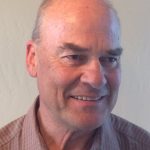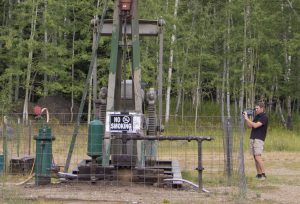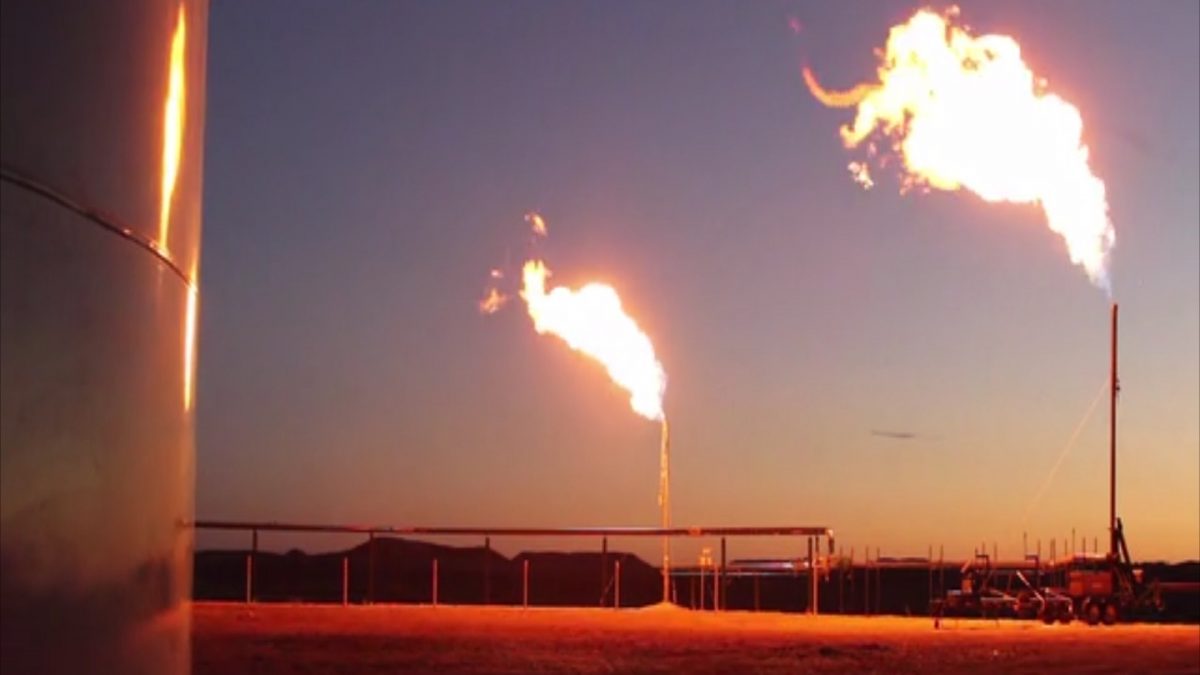- An Alliance For Community Action
- (970) 256-7650
- info@WesternColoradoAlliance.org
Bring emissions control for oil and gas up to current technology
by Rodger Steen, Alliance Board member, Steamboat Springs
(This article published as an op-ed in the Grand Junction Daily Sentinel, September 9, 2018)

Rodger Steen
As the Trump administration eliminates common-sense federal protections to reduce methane emissions, Colorado again is leading the way to protect our air quality and conserve our mineral resources.
Earlier this year, the Colorado Air Quality Control Commission (COGCC) began a review of whether or not it should update minimum air emission control technology for oil and gas operations throughout the state. The rules that are under consideration are already in effect along the Front Range.
The Statewide Hydrocarbon Emission Reduction (SHER) Task Force, comprised of officials from the energy industry, local citizens groups, government representatives and other stakeholders, is considering the possibility of updating and extending tighter air quality emission allowances to the entire state, including the West Slope. Western Colorado Alliance is an active participant on the Task Force.

In August, Alliance members participated in a field trip to check out oil and gas sites with a FLIR (Forward Looking Infra-Red) camera. The specialized device can detect leaking hydrocarbon gases which are invisible to the naked eye.
The fact that the Colorado Department of Public Health and Environment has already seen fit to apply stricter rules on the Front Range makes a strong case for their application here on the West Slope and elsewhere in Colorado. After all, ozone levels around Rangely and the Four Corners area have at times been measured near and above ambient air quality standards required under the federal Clean Air Act. Moreover, there are no ambient standards for the carcinogens also emitted from all of the oil and gas operations that our residents breathe. So, being lower than the ambient standards does not necessarily mean that the air on the West Slope is always “healthy”.
The Colorado Clean Air Act requires industry use currently available technologies to protect our health, welfare and comfort and ensure we have clean enough air to recreate safely outdoors. The relevant part of the Colorado Clean Air Act reads:
“In order to foster the health, welfare, convenience, and comfort of the inhabitants of the state of Colorado and to facilitate the enjoyment and use of the scenic and natural resources of the state, it is declared to be the policy of this state to achieve the maximum practical degree of air purity in every portion of the state, to attain and maintain the national ambient air quality standards, and to prevent the significant deterioration of air quality in those portions of the state where the air quality is better than the national ambient air quality standards. To that end, it is the purpose of this article to require the use of all available practical methods that are technologically feasible and economically reasonable so as to reduce, prevent, and control air pollution throughout the state of Colorado;” …. (Colorado Revised Statutes Section 25-7-102)
The use of “all available practical methods that are technologically feasible and economically reasonable” is required. This is a clear pollution-limiting requirement of industry and applies regardless of the level of air quality local to that industry. It leaves little room for interpretation, especially when it comes to protecting our air quality before it become unhealthy.
Most Colorado citizens and industries are willing to live with this. People drive cars, trucks, ATVs, snowmobiles, etc. that incorporate current emission control technology; the power industry has installed upgrades to its pollution controls throughout the state, as have other industries regardless of local air quality conditions.
The purpose of this “technologically feasible and economically reasonable” clause in our state law, developed about 40 years ago and integrated at that time into the air regulations, is easy to understand. It:
- Eliminates the irresistible opportunity of the first company in a clean-air basin from polluting up to the health standards and thereby eliminating the ability of any other company from moving in;
- Creates an even playing field for all industries wanting to do business in a particular region or air basin; and
- Establishes that clean air is a public resource and no one has the right to pollute more than the minimum necessary to operate.
Most of the emission control methods being considered by the SHER Task Force, such as requiring use of emission controls for smaller sources of pollution, more frequent regular inspections and prompt repair of leaks, have been tried on the Front Range. They have been found to be effective at decreasing emissions at an acceptable cost. The steady amount of drilling that continues on the Front Range even with these stricter requirements demonstrates the cost effectiveness of these tighter controls.
Our Clean Air Act requires the use of current emission control technology by our oil and gas industry, even on the West Slope. And our citizens deserve the same protections afforded those living on the Front Range. It is the job and responsibility of our federal agencies to mange our resources responsibility and ensure all Americans have clean air to breath no matter what state they live in. However, if we cannot count on federal agencies to act on our behalf, it is critical that states continue the work as well. The SHER Task Force is seeking to meet these obligations to our citizens throughout Colorado and will have a recommendation for action next year.
Steamboat Springs resident Rodger Steen is an air pollution engineer who worked with industry and government. He is currently chairman of Western Colorado Alliance for Community Action’s Oil and Gas Committee.


